Information
About INI
- Promoting the latest policy-relevant research on nitrogen production, consumption and losses to the environment
- Providing a forum and functioning as a catalyst for interdisciplinary nitrogen research
- Supporting multi-stakeholder engagement for the development of evidence-based policies for sustainable nitrogen management
The overarching vision that motivates INI is a world that optimizes nitrogen’s beneficial role
in food production while staying within nitrogen’s planetary boundary in order to safeguard
the environment and human health.
https://initrogen.org/
The 8th International Nitrogen Initiative Conference
INI2021 will take place online from 31 May to 3 June 2021
Reactive nitrogen compounds are a key resource for food production in the light of a growing world population. At the same time, human activities through multiple processes result in losses of reactive nitrogen to all environmental media. The increased abundance of reactive nitrogen in the biosphere leads to numerous effects on the environment, human health, climate and biodiversity.
Pressure on the planet’s resources and ecology is steadily increasing. The amount of reactive nitrogen compounds emitted into the environment is far too high and already exceeds the “safe operating space” for future life on our planet. Most of the UN Sustainable Development Goals (SDG) are closely interlinked with the nitrogen cycle. This demonstrates the crucial importance of solutions for this complex problem, which must fit the framework conditions in the respective region. Meeting these goals in parallel is dependent on spreading knowledge on effective nitrogen management, increasing the efficiency of nitrogen use in food production and decreasing unwanted nitrogen emissions to the biosphere. The resolution of the fourth session of the UN Environment Assembly (UNEA-4) on sustainable nitrogen management recognizes the multiple pollution threats resulting from anthropogenic reactive nitrogen, including air pollution, with adverse effects on the terrestrial, freshwater and marine environments. The resolution supports the exploration of options through which the SDGs could be achieved, including the sharing of assessment methodologies and relevant best practices.
The 8th conference of the International Nitrogen Initiative (INI2021) will be the meeting point for scientists from all over the world who are dealing with reactive nitrogen compounds in agriculture, industry, traffic, soil, water and air. It will be the place to exchange results, ideas and visions to improve future holistic management of reactive nitrogen in order to further reduce hunger and poverty and at the same time avoid further hazards for human health, biodiversity and environmental media. It will be a perfect opportunity to engage with important policy makers and other relevant stakeholders. A joint conference declaration based on the latest scientific knowledge might stimulate further policy action towards effective integrated nitrogen management.
INI conferences are held every three years on different continents. After the first conference in the Netherlands in 1998, INI2021 is now being organized from Europe again: Germany, the place where about 100 years ago scientists Fritz Haber and Carl Bosch invented industrial ammonia fixation, a major source of today’s reactive nitrogen circulating through the biosphere, is proud to be the organizer of a major online conference.
At INI2021, scientists and delegates are invited to present findings on:
- Sustainable agriculture, food and nutrition systems, in relation to effective nitrogen management
- Threats for health, environment and biodiversity and solutions to combat these nitrogen-driven effects
- Observations of global challenges, nitrogen fluxes and interactions between different drivers and pressure
- Closing the nitrogen cycle through innovations for sustainable N management
- Integrated nitrogen science and policy approaches
INI2021 is hosted by Germany’s Environment Agency (Umweltbundesamt – UBA) with the support of the Federal Ministry for the Environment, Nature Conservation and Nuclear Safety. Coorganizer is the International Nitrogen Initiative.
Welcome to Berlin – it would have been a pleasure for us!
The theme of the INI2021 highlights the relevance of a sustainable nitrogen management within the UN 2030 Agenda, of which the Sustainable Development Goals (SDGs) are the heart. An urgent call for action. While an increasing supply of nitrogen is a prerequisite for combating hunger in some parts of the world, we simultaneously have to reduce nitrogen emissions significantly in order to sustain diverse ecosystems on land and below water (in rivers, lakes and oceans), to improve and preserve human health and to tackle climate change. Recognizing these direct linkages, the Fourth United Nations Environment Assembly recently agreed on a resolution on “Sustainable Nitrogen Management”.
In order to further substantiate and advance these high-level processes, the global “reactive nitrogen community” is asked to enhance the understanding of the impacts of reactive nitrogen, its interdependencies with other environmental phenomena and related tipping points. Additionally, it will be crucial to further develop integrated N-mitigation measurement portfolios and to cultivate scenarios leading to appropriate amounts of reactive nitrogen within the system. This will help to inform policies, push innovative industries, refine education and will ultimately contribute to a transformation towards a more sustainable consumption and production.
The German Environment Agency is convinced that an integrated approach, connecting the different environmental endpoints and nitrogen emitting sectors, fosters synergies and trade-offs and is thereby most beneficial for the solution of the various problems related to excess nitrogen emissions.
In this spirit, INI2021 is a unique opportunity to bring together scientific and political representatives of the large global “reactive nitrogen community”. The virtual get-together is being organized by the country where Professor Fritz Haber and Dr. Carl Bosch invented the industrial ammonia synthesis more than a century ago. I am confident that the conference will be a valuable experience for all participants and an excellent opportunity to exchange knowledge and experiences that will help find sustainable solutions for reactive nitrogen management on the international and national level.
It now rests with you to supplement the conference outline with your research and visions in the form of lectures, poster presentations and contributions to discussions.
We look forward to learning from you at INI2021!
Professor Dirk Messner – President of the German Environment Agency
INI goes fully virtual – we would have loved to meet in Berlin!
Previous conference declarations as well as INI-sponsored nitrogen assessment reports across national and regional scales have contributed significantly to increasing calls for international action. These efforts culminated in the adoption of an intergovernmental resolution on sustainable nitrogen management at the UN Environment Assembly in March 2019 – a watershed moment in global nitrogen governance. It is therefore very fitting that the German Environment Agency is the main organizer of INI2021, with the support of the Federal Ministry for the Environment, Nature Conservation and Nuclear Safety. This is the first time a government body has taken an organizing role, and a reflection of nitrogen’s increasing importance to policymakers.
The overarching theme of INI2021 is the Sustainable Development Goals – the 17 UN-sanctioned targets for social, environmental and economic outcomes to be achieved by 2030 – with nitrogen central to 16 of them. How humanity manages its relationship with nitrogen over the coming decade will be critical in determining whether we meet these goals. Some, such as ending hunger and poverty, will require better access to nitrogen. Others, such as protecting life on land and below water as well as climate action, will require reducing nitrogen pollution. All will benefit from better nitrogen management and more effective policies. And while we are confident INI2021 will mark an important step in advancing nitrogen science and policy further, its success will depend on you – your work, your ideas, and ultimately, your participation.
We look forward to seeing you online. Welcome and herzlich willkommen!
N. Raghuram (Chair of the International Nitrogen Initiative)
David R. Kanter (Vice-Chair of the International Nitrogen Initiative)
Contact details
Sustainability
INI 2021 – Sustainability
Staging the conference online will make it almost carbon neutral. We will save tons of CO2 and nitrogen oxide emissions by avoiding flights and an energy-intensive venue. This will help the climate and the nitrogen cycle.
Committees
Organizing and Advisory Committees
The Organizing Committee is responsible for the organizational preparation and realization of the conference. The advisory boards support the Organizing Committee with proposals and scientific recommendations for the program structure, program focuses, special sessions and possible keynote speakers. In close cooperation all three groups decide about the final conference program. The advisory boards help to disseminate most relevant information about the conference.
Organizing Committee

Markus Geupel
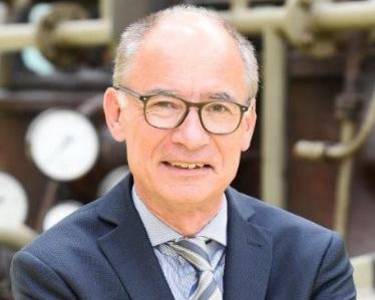
Prof. Dr. Henning Friege
Honorary Professor for Sustainability Sciences, Leuphana University, Lüneburg
Lecturer for Waste Management, Technical University, Dresden
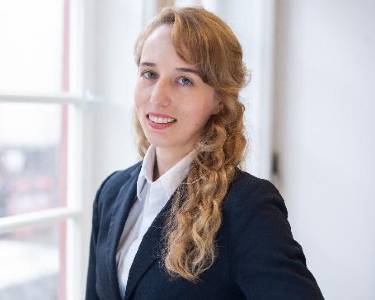
Svenja Sophie Jürgens
Project Management
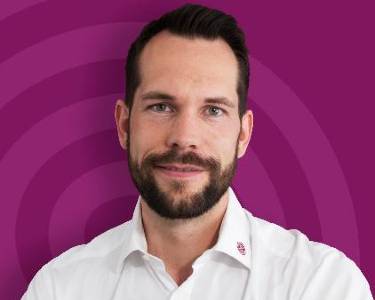
David Obladen
Technical Support
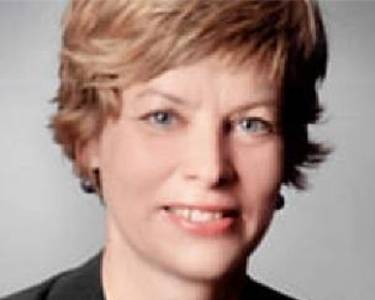
Simone Richter
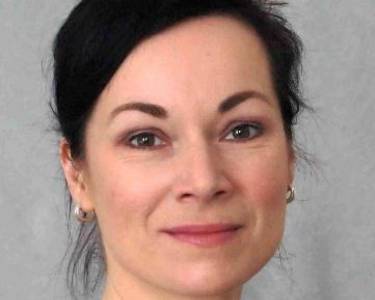
Dr. Stefanie Wolter
Local Advisory Committee
Prof. Dr. Barbara Amon
Leibniz Institute for Agricultural Engineering and Bioeconomy (ATB), Germany
University of Zielona Góra, Poland
Dr. Klaus Arzet
Bavarian Ministry of Environment and Consumer Protection Department of Water Management and Soil Protection National and international River Basin Management, Germany
Dr. Benjamin Bodirsky
Potsdam Institute for Climate Impact Research, Germany
Prof. Dr. Martin Diekmann
Universität Bremen FB 02 Institut für Ökologie, Germany
Prof. Dr. Barbara Hoffmann
Universität Düsseldorf, Institut für Arbeits-, Sozial- und Umweltmedizin, Germany
Dr. Henning Meesenburg
Nordwestdeutsche Forstliche Versuchsanstalt, Germany
Dipl.-Ing. Bernhard Osterburg
Johann Heinrich von Thünen-Institut, Germany
Dr. Markus Salomon
Sachverständigenrat für Umweltfragen, Germany
Dr. Wolfgang Sprenger
Bayer. Landesamt für Umwelt, Germany
Prof. Dr. Friedhelm Taube
Univ. Kiel, Inst. F. Pflanzenbau u. Pflanzenzüchtung, Germany
Prof. Dr. Maren Voss
Leibniz-Institut für Ostseeforschung Warnemünde, Germany
International Advisory Committee
Prof. Dr. Tapan Adhya
Kalinga Institute of Industrial Technology (KIIT), India
PhD Vincent O. Aduramigba-Modupe
Institute of Agricultural Research & Training Obafemi Awolowo University, Nigeria
Christopher Cox, Mahesh Pradan
United Nations Environment Programme
UNEP, Kenya
Prof. Dr. Jan Willem Erisman
Louis Bolk Institute, Netherlands
Dr. Cameron Gourley
Future Farmin Research Div., Dpt. Prim. Industries, Australia
Dr. Kevin Hicks
Stockholm Environment Institute, UK
Dr. Clare Howard
Centre of Ecology and Hydrology, UK
Prof. Dr. Xiaotang Ju
China Agricultural University, China
Prof. David Kanter
New York University, USA
Dr. Adrian Leip
European Commission – Joint Research Centre, Italy
Dr. Cargele Masso
International Institute of Tropical Agriculture, Nigeria
Prof. Dr. Jean Ometto
Brazilian National Institute for Space Research, Brazil
Prof. Dr. Cheryl Palm
University of Florida – Institute for Sustainable Food Systems, USA
Prof. N. Raghuram
University School of Biotechnology, India
Prof. Dr. Mark Sutton
Centre for Ecology and Hydrology , UK
Prof. Dr. Wilfried Winiwarter
Institut für Applied System Analysis, Austria
Scientific Committee
The Scientific Committee is responsible for reviewing submitted papers and deciding on the acceptance of the presentations submitted. This Committee consists of numerous members of the International and the Local Advisory Committees as well as additional experts from academia, administration, scientific associations, and industry.
Prof. Dr. Tapan Adhya
Kalinga Institute of Industrial Technology, India
PD Dr. Barbara Amon
Leibniz Institute for Agricultural Engineering and Bioeconomy (ATB), Germany
University of Zielona Góra, Poland
Dr. Klaus Arzet
Bavarian State Ministry of the Environment and Consumer Protection, Germany
Dr. Martin Bach
Giessen University, Germany
Dr. Sabine Banzhaf
Freie Universität Berlin, Germany
Johannes Biala
University of Queensland, Australia
Dr. Benjamin Bodirsky
Potsdam Institute for Climate Impact Research, Germany
Prof. Dr. Peter Bruckmann
Germany
Dr. Christian Brümmer
Thünen Institute, Germany
Dr. Marijana Curcic
University of Belgrade, Serbia
Dr. Ulrike Döring
German Environment Agency, Germany
Andreas Eisold
German Environment Agency, Germany
Prof. Dr. Jan Willem Erisman
Louis Bolk Institute, Netherlands
Prof. Dr. Henning Friege
N³ Thinking Ahead Dr. Friege & Partners, Germany
Dipl.-Ing. Nils Friege
Düsseldorf District Government, Germany
Prof. Dr. Jim Galloway
University of Virginia, USA
Markus Geupel
German Environment Agency, Germany
Dr. Cameron Gourley
State Government Victoria, Dept. Agriculture, Australia
Patrick Heffer
International Fertilizer Association, France
Dr. Kevin Hicks
University of York, Stockholm Environment Institute, UK
Prof. Dr. Barbara Hoffmann
Heinrich Heine University Düsseldorf, Institute for Occupational, Social and Environmental Medicine, Germany
Dr. Max Hofmeier
German Environment Agency, Germany
Prof. Dr. Xiaotang Ju
China Agricultural University, China
Prof. Dr. Alexander Kekulé
Martin Luther University Halle-Wittenberg, Institute of Medical Microbiology, Germany
Dr. Till Kuhn
University of Bonn, Institute for Food- and Resource Economics, Germany
Dr. Luis Lassaletta
Technical University of Madrid, Spain
Adrian Leip
Joint Research Centre – European Commission, Germany
Prof. Dr. Borhane Mahjoub
Ministry of Higher Education and Scientific Research, Tunisia
Dr. Henning Meesenburg
Northwest German Forest Research Institute, Germany
Dr. Barbara Navé
BASF, Germany
Stephan Nordmann
German Environment Agency, Germany
Dr. Malte Oehlmann
Adelphi, Germany
Prof. Dr. Jean Ometto
Brazilian National Institute for Space Research, Brazil
Dipl.-Ing. Bernhard Osterburg
Thünen Institute, Germany
Dr. Anne-Katrin Prescher
Thünen Institute, Germany
Dr. Andreas Prüeß
State Institute for Environment, Measurements and Nature Conservation Baden-Württemberg, Germany
Simone Richter
German Environment Agency, Germany
Dr. Markus Salomon
German Advisory Council on the Environment, Germany
Dr. Alberto Sanz Cobena
Technical University of Madrid, Spain
Lisa Schlesinger
German Environment Agency, Germany
Dr. Frederik Schrader
Thünen Institute, Germany
Dr. Wolfgang Sprenger
German Environment Agency, Germany
Prof. Dr. Friedhelm Taube
Kiel University, Institute of Crop Science and Plant Breeding, Germany
Dr. Hans van Grinsven
PBL Netherlands Environmental Assessment Agency, Netherlands
Prof. Dr. Maren Voß
Leibniz Institute for Baltic Sea Research, Germany
Dr. Gabriele Wechsung
German Environment Agency, Germany
Prof. Dr. Wilfried Winiwarter
International Institute for Applied Systems Analysis, Austria
Prof. Dr. Alexander Wissemeier
BASF, Germany
Prof. Dr. Reinhard Zellner
University of Duisburg-Essen (ret.), Germany
Asst. Prof. Dr. Xin Zhang
University of Maryland Center for Environmental Science, USA